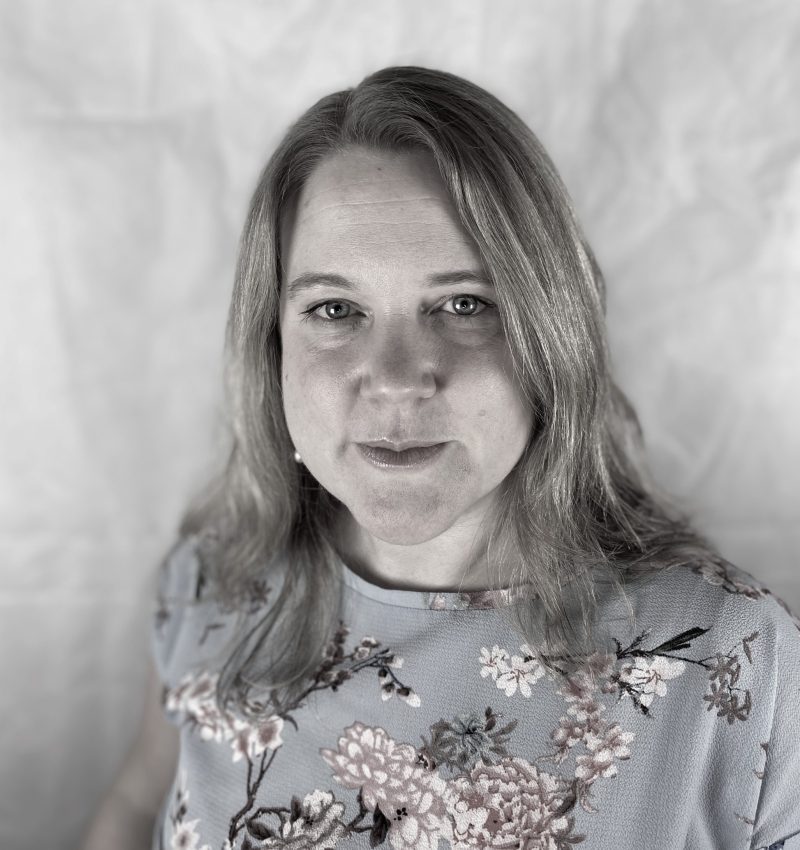
From Sociology to Systems Change: An Investigator’s Path Inside Sweden’s Higher Education Authority
Introduction
How do research skills translate outside academia? In this career portrait, Eva-Lisa Palmtag, Investigator/Analyst at the Swedish Higher Education Authority (UKÄ), reflects on her path from sociology research to sector-level analysis, sharing her advice for PhD students considering public sector roles.
Your skills are the point
When Eva-Lisa Palmtag started out in sociology, first in Germany, then at Stockholm University, she didn’t have a public sector career in mind. What she did have was curiosity, persistence, and a taste for data. A research assistantship on Sweden’s Level of Living Survey opened the door to a PhD on divorce and family sociology, and being surrounded by PhD students made a research career seem natural. She completed her PhD in 2023.
But the post-PhD reality, funding applications, uncertainty, and a young family, prompted a pause. “I wanted a more secure job,” she says. “It was a big step, because PhD training is so focused on the academic pathway.” That decision led her to UKÄ, Sweden’s national authority for higher education quality assurance, supervision, and sector analysis.
Today, Eva-Lisa works as an investigator/analyst in a team that examines whether higher education helps meet Sweden’s workforce needs, evaluating questions such as “Do we educate enough nurses, pharmacists, doctors… and do graduates establish themselves after their studies?” She also helps carry out student national survey capturing students’ experiences across Swedish higher education. “It’s rewarding to be able to show data others can use, such as researchers, journalists, and universities,” she says. “ Registers don’t tell the whole story, so the survey adds a different lens.”
From campus independence to agency rhythm
The move from academia to a national authority brought welcome structure and a culture shift. “Work–life balance is very good,” she notes. UKÄ encourages hybrid work and actively checks in with staff. “In the beginning they told me: don’t work weekends, don’t take work into the evenings. That was new!”
The other difference: coordination. “It’s a lot of meetings,” she says. “A typical day might include group or unit meetings, and depending on the project, time working with official statistics from Statistics Sweden or writing reports.” Compared to the autonomy of a PhD, authority work is “more organized or strict, just a different way of working.” Yet something she values: a manager to plan with, escalate to, and align priorities with.
Transferable PhD skills
Which doctoral skills matter most? “Analytical thinking and framing questions,” she says. Government assignments can be broad, for example, being asked to map or analyze complex systems, and the PhD habit of carving a big question into tractable ones is crucial. Project management matters, too: “Finishing a PhD is managing a multiyear project.”
The biggest mindset shift was realizing that skills, not topic expertise, open doors. “It’s not what I learned about divorces that’s important here,” she explains. “It’s how I formulate questions, work with data, and present findings. That’s what transfers.” Her team includes colleagues from chemistry, biology, and other fields, “They’re not using their specific subject knowledge day-to-day, but the skills are invaluable.”
What students say and why it matters
Recent Students survey findings illustrate how UKÄ’s work can inform practice. “About half of the students said they want more practical components,” she notes. Even in theory heavy subjects, “more lab work, fieldwork, or applied tasks” could help. Another project she’s working on maps drop out patterns across 10 health programmes, from pharmacy to other clinical tracks, testing factors like gender, age, and parental background. “If we can identify risk patterns, universities can respond earlier.”
The sector ahead: stability with smart adaptation
When asked about the future of Swedish higher education, Eva-Lisa hopes for steady research about Swedish higher education in the future, “Higher education should stand for something stable, you learn to learn, and education is connected to research,” she says. Yet she also sees active fronts: debates on autonomy and academic freedom, and the practical challenges of AI and cybersecurity for both students and institutions. She believes Swedish research is of excellent quality, however competitive funding remains time consuming.
Practical advice for PhD students aiming for public sector roles
- Translate academic tasks into employer language: big-data handling, survey design, qualitative interviewing, synthesis, stakeholder communication, and report writing.
- If you’re targeting an authority or policy organization, read their publications to understand scope, tone, and methods.
- Mind the language gap. For Sweden specifically: “Swedish is often required for authority roles,” she says. If you want to stay, invest in the language.
- Expect a new rhythm. Authority work is collaborative and meeting heavy.
- Apply bravely. “I was hesitant. Did I ‘fit’ since it wasn’t my exact field? But your skills are the point. Be brave and apply.”
“It’s not your niche topic that employers want; it’s how you think, analyze, and communicate. Your skills are the point.”
Author’s note
Speaking with Eva-Lisa reframed how I see a PhD: not as a narrow subject, but as skills sets, analysis, project management, and communication that matter far beyond the thesis. Her journey shows how those skills can shape systems, not just studies.

0 comments